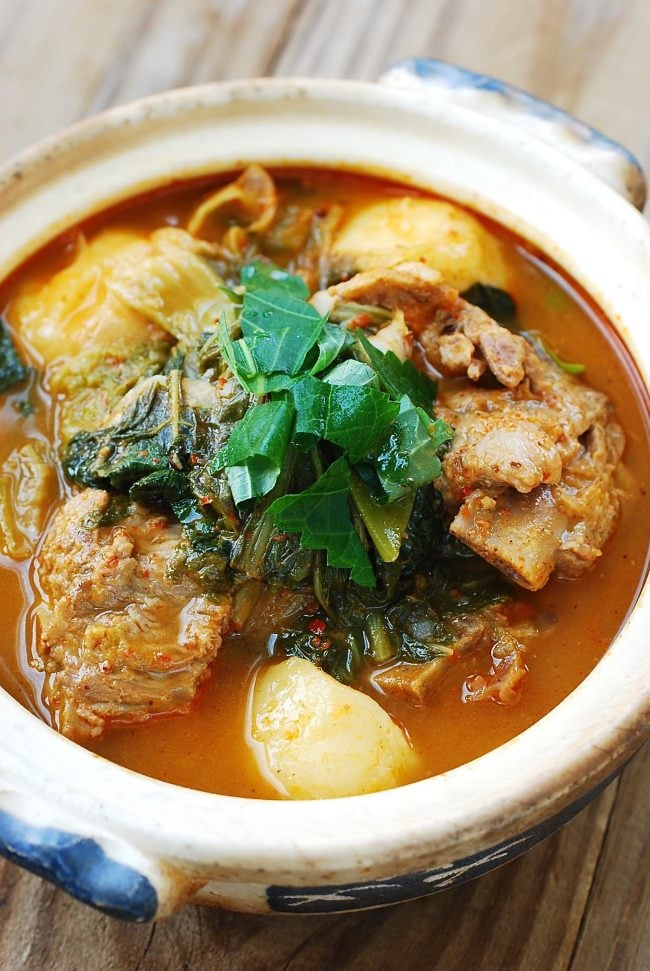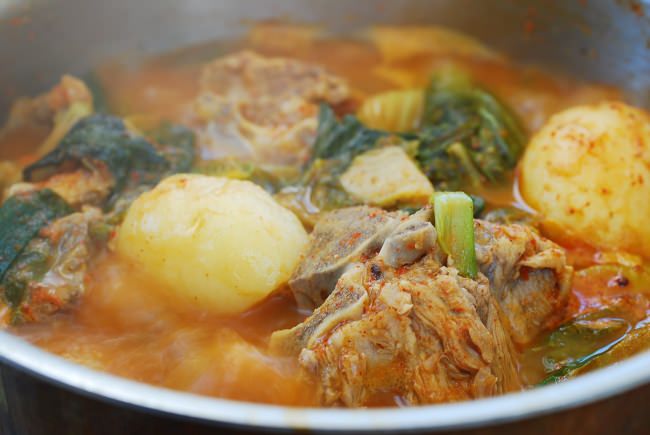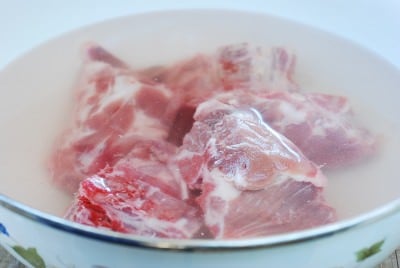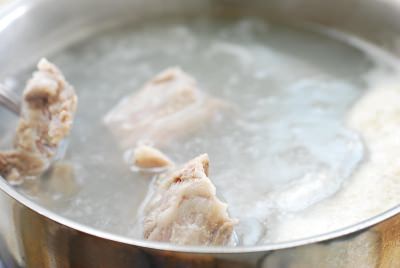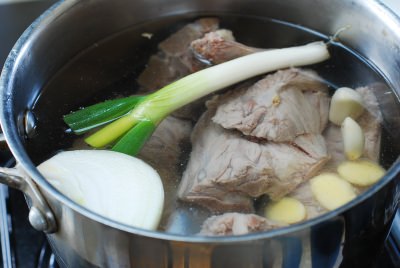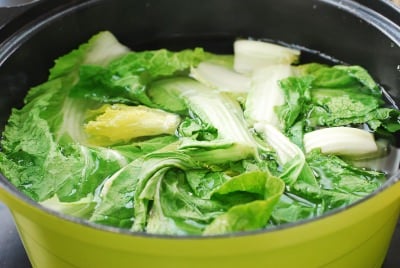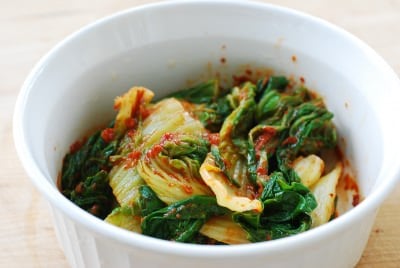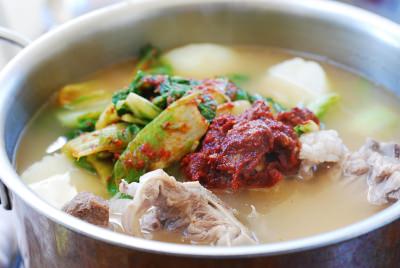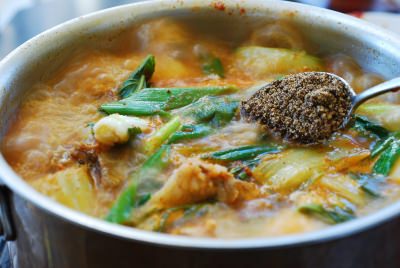Gamjatang is a spicy, hearty stew made with pork bones. Gamja is a Korean word that’s more commonly used for potato, but for this dish, gamja actually refers to a part of the pork spine. Honestly, I didn’t even know this until I started researching the origin of gamjatang for this post. Well, we learn something new every day! Ironically, this stew traditionally includes large chunks of potatoes, gamja, so I am sure most Koreans think that’s where the name of the stew came from, probably wondering why the potatoes in the dish seem extra rather than the main event.
Indeed, this dish is all about pork bones! They are used to make a deeply flavored, milky stew base, and the attached meat is fall-off-the-bone tender and delicious. You will need to soak the pork bones to remove excess blood, then briefly cook the bones in boiling water and discard the water to further remove the impurities from the bones. Then, boil the bones with the aromatic vegetables until the meat is tender and the broth is milky. A similar technique is used in galbitang and seolleongtang.
You can make this stew simply with pork bones and potatoes, but boiled napa cabbage or young cabbage is also commonly added. The stew is flavored with typical Korean condiments such as doenjang, gochujang, and gochugaru. However, it also calls for crushed perilla seeds (ddeulkkae garu) and fresh perilla leaves (kkaennip), which gives the stew distinct nutty flavors. I know you probably don’t want to buy crushed perilla seeds just for this one recipe, but it can be used as a substitute for sesame seeds in many Korean dishes, especially in namul dishes or bibim guksu.


- 2 pounds of pork spine or neck bones
- 1/2 small onion
- 5 garlic cloves
- 3 thin ginger slices (about 1-inch rounds)
- 1 scallion white part
- 5 to 6 ounces young cabbage (putbaechu, 풋배추) or napa cabbage (1 cup, boiled)
- 3 small white potatoes
- 6 to 8 perilla leaves (kkaennip, 깻잎), roughly sliced
- 2 scallions, roughly sliced
- Seasoning
- 1 tablespoon gochugaru (use a teaspoon more for a spicier stew)
- 1 tablespoon gochujang, Korean red chili pepper paste
- 2 teaspoons doenjang, Korean fermented soybean paste
- 1 tablespoon soup soy sauce, gukganjang (국간장)
- 1 tablespoon garlic
- Salt and pepper to taste
- Soak the bones for an hour or longer in cold water. Change the water half way through if you can. Drain.
![Gamjatang (Spicy pork bone soup)]()
- Bring a medium pot of water to a boil. Drop the bones in. Let it come back to a boil. This will take about 7 to 8 minutes.
![Gamjatang (Spicy Pork Bone Soup)]()
- Drain the bones. Wash the bones under running water. Clean the pot. Return the bones back to the pot. Add 8 cups of water, the onion, garlic, ginger and scallion. Bring it to a boil. Continue to boil, uncovered, for 10 minutes over medium high heat. Reduce the heat to medium low. Continue to boil, covered, for 50 minutes to an hour until the meat is tender and the broth is milky.
![Gamjatang (Spicy Pork Bone Soup)]()
- Mix the seasoning ingredients well together.
![Gamjatang]()
- Bring a medium pot of water to a rapid boil. Blanch the cabbage until the white parts turn soft, 4 to 5 minutes. Remove the cabbage from the pot (keep the hot water to boil the potatoes) and shock in cold water to stop the cooking. Drain and squeeze out water. Cut into 2 to 3-inch lengths.
![gamjatang]()
- Mix the cabbage well with 1 tablespoon of the seasoning.
![gamjatang]()
- In the pot of water used to blanch the cabbage, boil the potatoes until cooked but still hard. Peel the potatoes.
![Gamjatang]()
- Remove the meat from the broth. Discard the aromatic vegetables. Place the bone back in the pot. Add the cabbage, potatoes, and the remaining seasoning. Boil for about 10 minutes.
![Gamjatang (spicy pork bone stew)]()
- Add the perilla leaves and scallion. Boil for a couple of minutes, and then add the crushed perilla seeds.
![Gamjatang (Spicy Pork Bone Soup)]()
The post Gamjatang (Spicy Pork Bone Stew) appeared first on Korean Bapsang.

